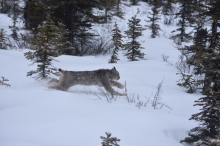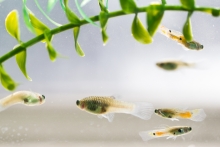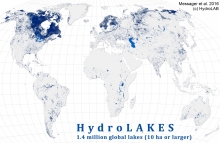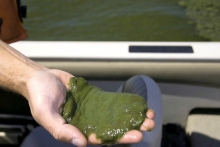Using a Fitbit and a spy mic, scientists have discovered new insight into the behaviour of the elusive Canada lynx. A new study by researchers from McGill University, University of Alberta, and Trent University provides a first look at how miniaturized technology can open the door to remote wildlife monitoring.


Male guppies exposed to predators in the wild or in captivity have heavier brains than those living in relatively predator-free conditions, according to new research published in the journal Functional Ecology.
Behavioural ecologists at McGill University in Montreal sampled guppies from two rivers in northern Trinidad. In each river, guppies live both above a waterfall, a location that only guppies and a few other small species of fish have managed to colonize, and below the fall, where many predators including pike cichlids live.

Even for the most common processes, such as changes in population size or food chains, ecologists must take evolution into consideration, researchers say. “Everybody realized rapid evolution was occurring everywhere,” says evolutionary ecologist Andrew Hendry of McGill University.
“It has been something of a mystery why predators are so important in animal extinctions,” says Kyle Elliott, an assistant professor in McGill University’s Dept. of Natural Resource Sciences and the first author of a recent study on the subject published in the Proceedings of the Royal Society B. “As prey populations decline, predators should simply switch to other prey.

Shipping and mining in the Arctic. The spread of invasive microbial pathogens around the world. Changing agricultural practices. Use of genomic-modification tools. Those are among the 14 most significant issues that could affect the science and management of invasive species over the next two decades, according to an international team of ecologists, who published their findings in the journal Trends in Ecology and Evolution.

The total shoreline of the world’s lakes is more than four times longer than the global ocean coastline. And if all the water in those lakes were spread over the Earth’s landmass, it would form a layer some four feet (1.3 metres) deep.

The organisms commonly known as blue-green algae have proliferated much more rapidly than other algae in lakes across North America and Europe over the past two centuries – and in many cases the rate of increase has sharply accelerated since the mid-20th century, according to an international team of researchers led by scientists at McGill University.
